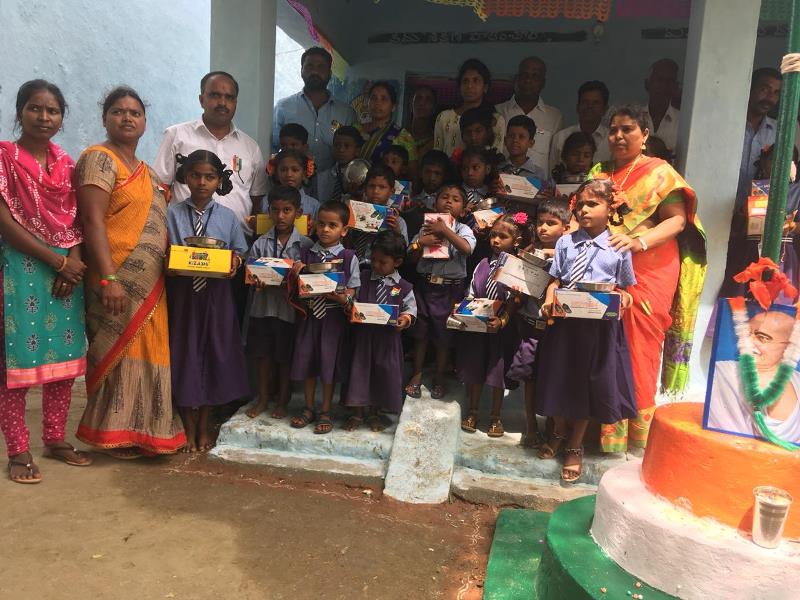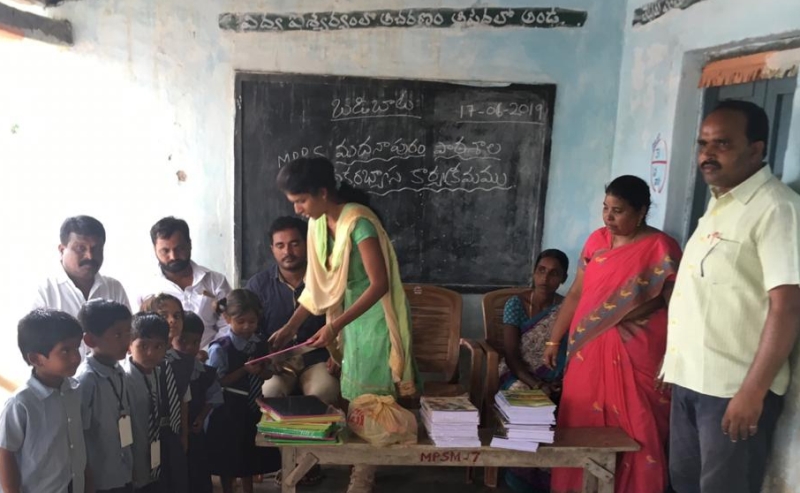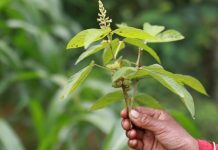India’s vibrant claim about being a democratic country comes from its functioning which actively conducts free and fair regular elections, its institutions. One such institution which added another feather to its vibrancy is the 73rd and 74th constitutional amendments which ushered in grassroots democracy, gave a meaning to political participation in India. Simply, it is the democracy from the below. A simple yet voluntary constitutional provision enshrined in the directive principles of state policy has become a constitutionally mandated tool for empowerment of the people. The provisions of 11th schedule and the articles from 243-2439(O), enlisting 29 subjects within the functions of the panchayat is a right and a historic step. The most significant part of this amendment is the one third reservation for women at levels of the panchayat raj institutions. Considering the fact that there are less women in politics and abysmally low number of women in parliament, presently the 17th Lok Sabha has only 14% of women elected representatives. There is a moment of celebration and also the systemic hindrance for women. It is very less than most of the developing countries average, but also the highest since the independence in our India. The bottom line is there is very low representation of women in India, in politics, and in legislatures.
In breaking this tradition, we at least now have a provision where lower levels of government have shown a path towards empowerment. Elected women representatives have created a huge presence at panchayats level, this symbolic presence definitely underlines how politics of presence is an effective tool in fighting misrecognition and standing against institutionalized patriarchy in politics. The very fact that women are being elected and their very presence is bringing the neglected group of people into foray in giving a strong message. A message of hope and a resistance, resistance sanctioned by the constitution of India. This political empowerment questions the power structures, establishing a new way of imagination of politics. Changing dynamics of rural India through effective voices of women is the hope that we as a society needs to nurture. There is a new series on a commercial entertainment platform called panchayat, which subtly, mentions how small changes can empower women elected representatives. This highly recommendable television series shows the categorical disgust of young people to not work in rural areas and its inherent adversaries. How change is often seen always as a top down approach and in today’s world how it failed is the narrative.

In a global pandemic perhaps many of us did not see such a situation coming. It threw us many challenges of survival, self-reliance, empathy, compassion and more than anything, the existing social cleavages are sharper, deeper and explicit. This is the time not only to build hope, but also a moment to again look at the ways the institutions functioned, directed our lives and perhaps created an ecosystem of exclusion, and taking how it has been taking many things for granted with overwhelming power and authority. We have seen an increasing humanitarian crisis, migrants with young children walking hundreds of kilometers, pregnant women giving birth to children in shramik trains, heart wrenching death of migrants on railway tracks. This needs a re-imagination of not just an approach to pandemic response, but the way government functions, governance models are designed. And the immediate response one gets is these poor, life feared coming from distant places have no sense of security and promising livelihood in their own villages and towns.
The local administration is now trying to recreate livelihoods through national rural employment guarantee act and making sure that their life is sustainable. This is the heart of this article. How do we create sustainable livelihoods and employment and improve our self-reliance as a nation when we have completely disoriented local self-governing institutions? It is not an exaggeration, but the way forward is, not a national policy of livelihoods, but localized, district- state specific livelihood mapping and generating a large spectrum of employment opportunities. This is not just bottom up; this pro-people and people centric administration in a country of 130 crores of population where we claim to have demographic dividend. The immediate task is to enable the PRI’s and the traditional problem of funds, functionaries and functions needs to be addressed. A common understanding of power and the control of that power is about centralization. This leads to inadequacies of governance and abuse of same power. Kerala model of grassroots democracy, Rajasthan’s model of women elected representatives being active stakeholder in bringing in change is the way forward. Odisha has given 50% reservation to women in all local bodies and this underlines how decentralized administration is pro -people administration. This from the below administration, is what keeps democracy alive, vibrant and designs a self-correcting course to marginalities, discrimination and deeply rooted social cleavages which are hindrances in building solidarity and fraternity.
In this story from the ground, I have covered an engaging narrative about a young woman sarpanch and her innovative and bold steps towards bringing a culture of sensibility and passion to politics. Vuttam Akhila Yadav, elected woman sarpanch (Pradhan) of Madhanapuram village, Chinthapalli mandal of Nalgonda district of Telangana has an interesting journey after being elected in 2019. Her responses to a telephone interview have been very interesting and stands as an example of how change from the below which is hostile to larger prejudices can be made and sustainable. This young, B.Sc Graduate how wants people in the village to learn about great political leaders of the country to know how politics can actually bring in change in the present deep cynicism towards politics by youth.
Leaving a corporate job, she strongly believes that the youth is interested in politics, however it is not a sustainable career and hence many don’t pursue it as a career option. Akhila, thought she could make small changes possible; she took this decision even though it was risky as a woman. Fighting patriarchal attitudes and stigma at the village level was overwhelming and she often faces this challenge of- what if she is married and she moves to a different village.Her family support has been very encouraging and could use her support in being more passionate and dedicated to the work. she argues that in a misogynistic world working with passion is the right answer. She reaffirms that she made possible changes. Asked about abysmally low percentage of women in politics, she said having a supportive family is crucial for being successful. Patriarchal attitudes and ‘institutionalized’ misogyny are major impediment in for aspiring women to be in politics for a long time. Now things are changing and strongly condemns the ‘pradhanprathi’ phenomenon in Panchayats.
Caste is an Indian reality. And at the village level, it assumes a very discriminatory character, when asked about the caste and its challenges Akhila narrated that she faced a problem which appalled her and vividly remembers. The cook at the village anganwadi center belongs to Scheduled caste and many children refused to eat the meal cooked by her. She tried to convince the villagers and she hardly made any progress. After few weeks, she started eating at the anganwadi center with the children. In no time the entire village knew about this and many children started eating at the anganwadi. Akhila strongly says as a sarpanch who is an elected people’s representative can bring huge symbolic message and a drive behavioral change in the village. As Jefferey Alexander argued, myths, narratives, symbols create a huge impact on how people reason and act. This perhaps demonstrates this cultural sociologist’s understanding of human behavior.
Flowing from deeply structural inadequacies the education system at a village level is in doldrums. This young sarpanch realized this and in a conversation with Akhila, she mentioned she felt uncomfortable as she herself never went to a government school was hesitant to build a strategy to motivate villagers to send their children to school. Being part of a system is also about how well we participate in the discourse of the functioning. She decided to take general knowledge and English classes weekly once at the school and with her consistent presence at school, the teacher attendance and the school children’s interest in learning has improved over a period of time. Akhila, during the pandemic after the clarion call given by the International community, National and State governments, stood at the entrance of the village with a scarf and a stick in the hand. Regulating the traffic and not allowing people to enter village with utmost commitment and dedication to the work. This incident attracted lot of attention from various national politicians and was featured in prime minister’s ‘man ki baath’ about her courageous act of duty. She was clear that lockdown has to be followed and only containment and enforcing lockdown can help in controlling the pandemic.

Having spoken to Akhila elaborately on various issues, the challenges of women sarpanches and young women entering into politics has given new dimensions. Her all time availability, sensitivity to issues and continuous process of learning is helping her in bringing doorstep governance. Grassroots democracy needs not just mere laws, in the global pandemic we have realized how important local institutions and their efficacy is. The narrative of identities based on caste; gender operate in a very active way at the ground level. Addressing those identities, making sure the governance models finds innovative ways to address those marginalities is the need of the hour. Local government institutions have to move towards creating sustainable models of governing people than representing age old hierarchies and bringing social legitimacy to it. The relative nature of deprivation and its deeply rooted injustices need a bottom up approach and there cannot be a better place than the rural India. The way we frame development and its agenda lies in the questions we ask. The structural bottlenecks need a holistic on ground, specific and localized approaches to development with dignity. We strongly need a positive deviance approach to problems at the rural level, which can happen through research, result and outcome-based results at the local level.
For this to happen, in the light of thousands of migrants coming back to their villages, we need to recreate and reorient the grassroots democracy and strengthen its institutions.Addressing all spectrum of problems can be bettered and made meaningful when seen from a below perspectives. What is democracy without meaning? What is democracy if it lacks a self-correcting discourse to developmental innovation. There can be a no better time than a global pandemic to address the local governing bodies and institutions and make them more resilient, accommodative and purposeful. At the end, governments and institutions are for the people and not the vice versa.
Srujana Yadav is an independent research working on issues related to gender, political economy and marginality.














